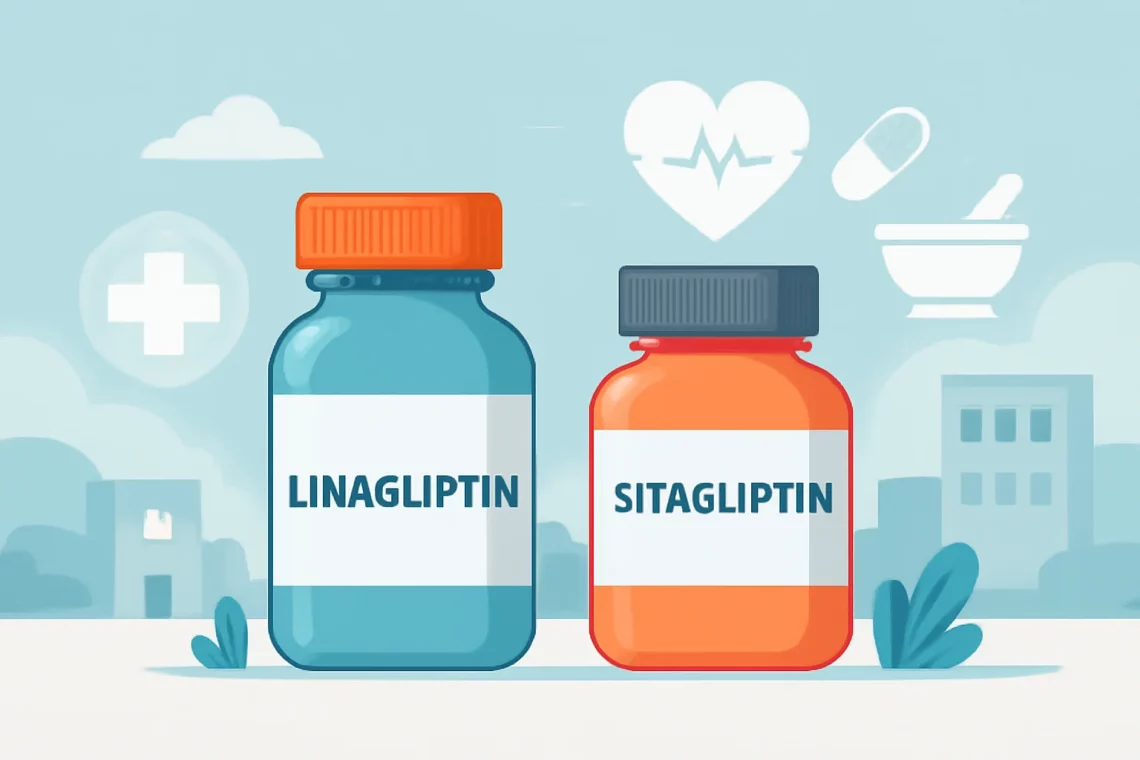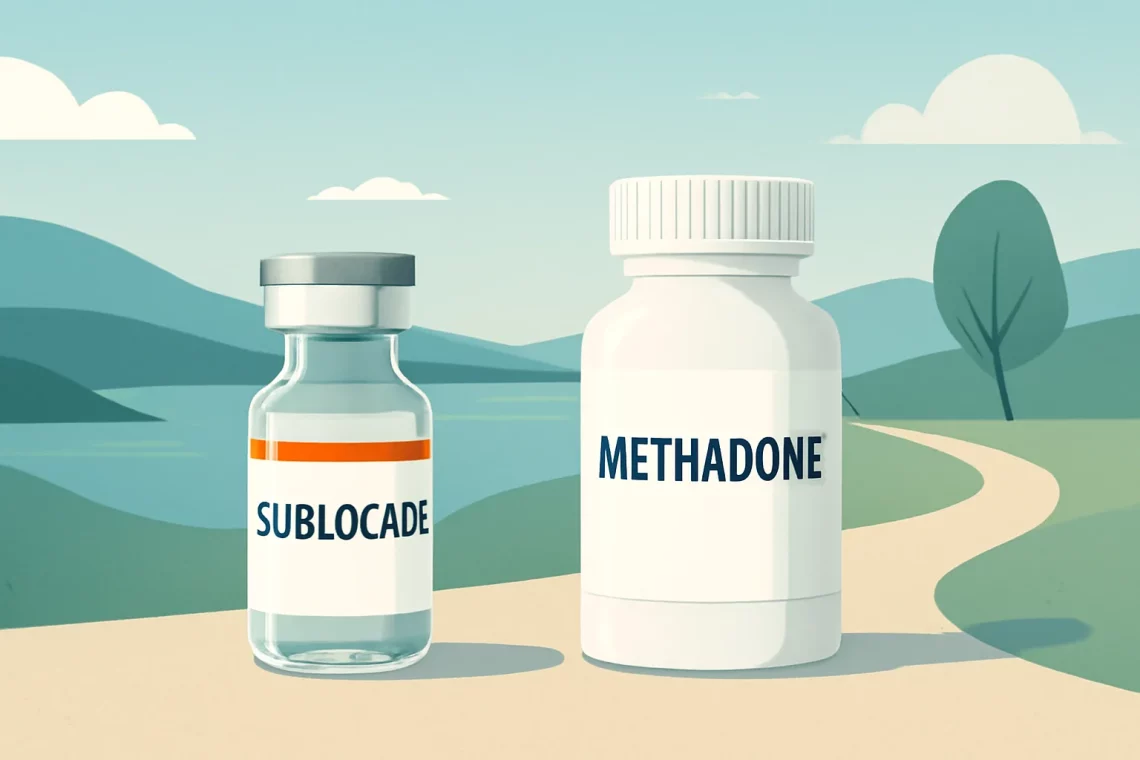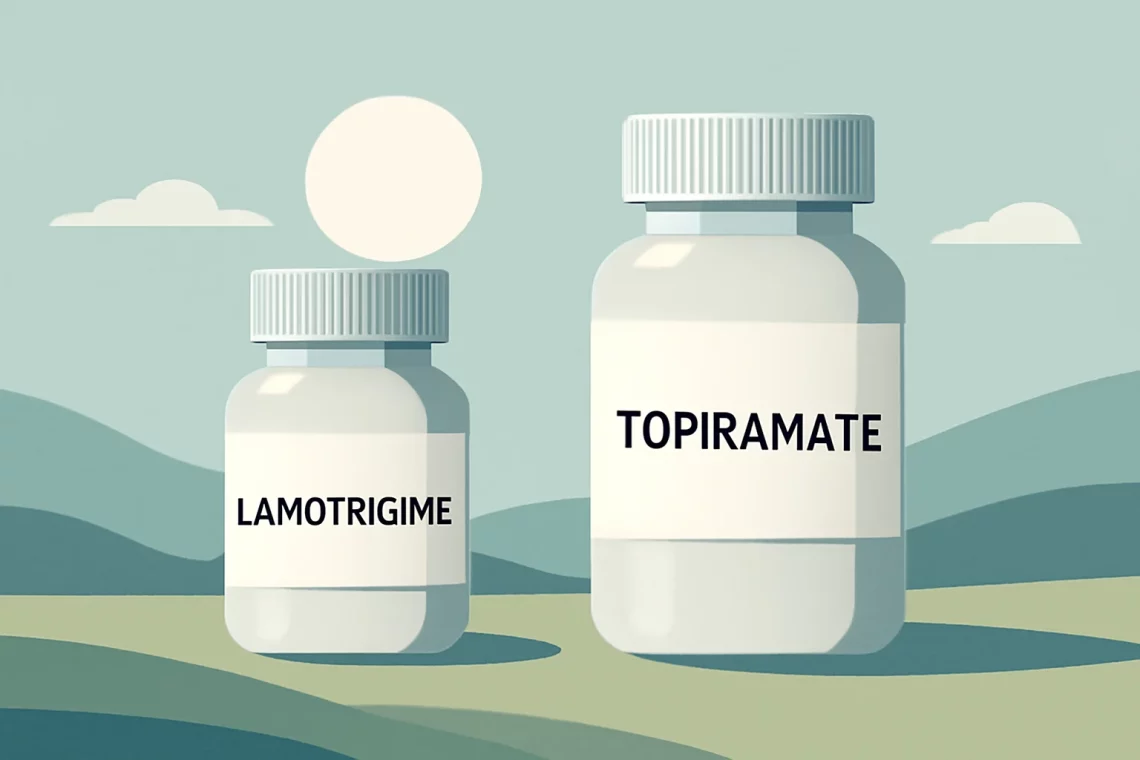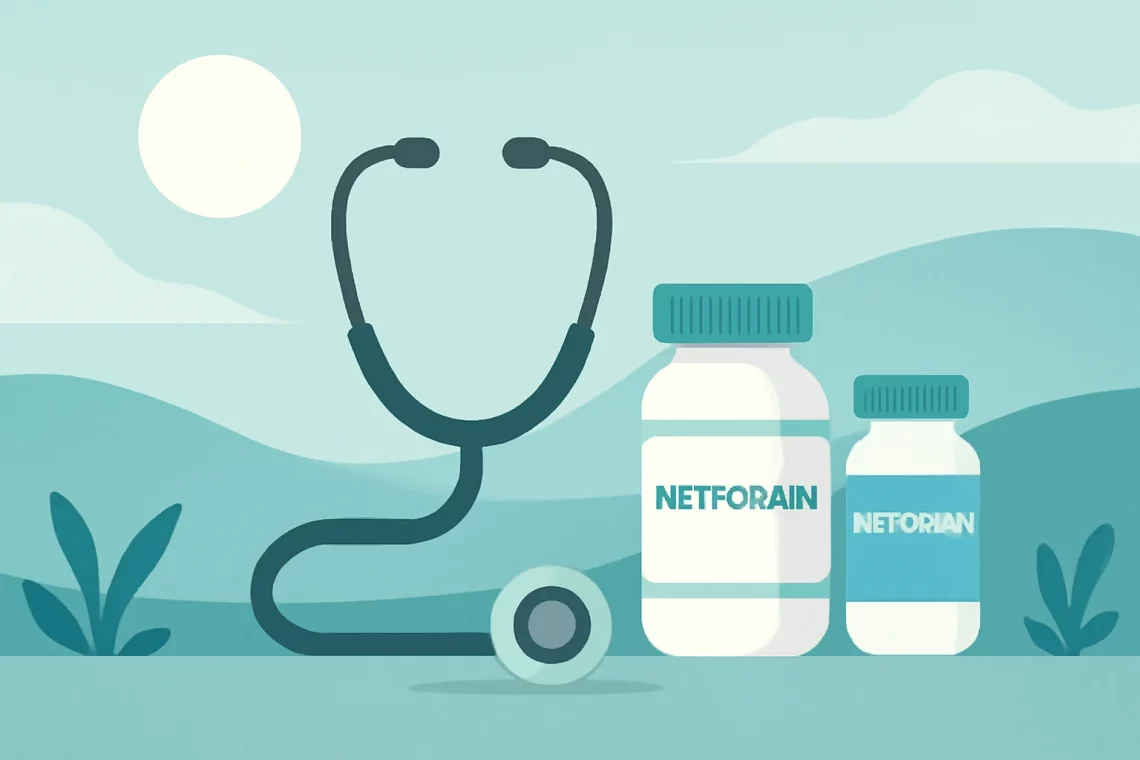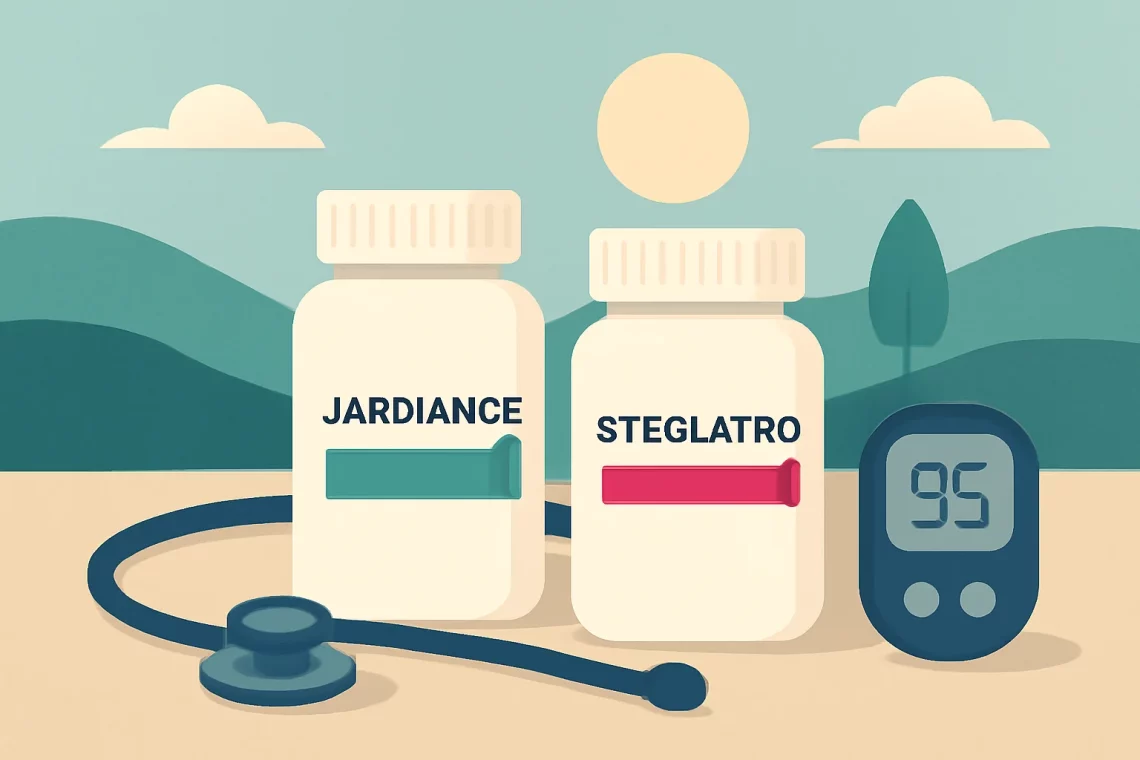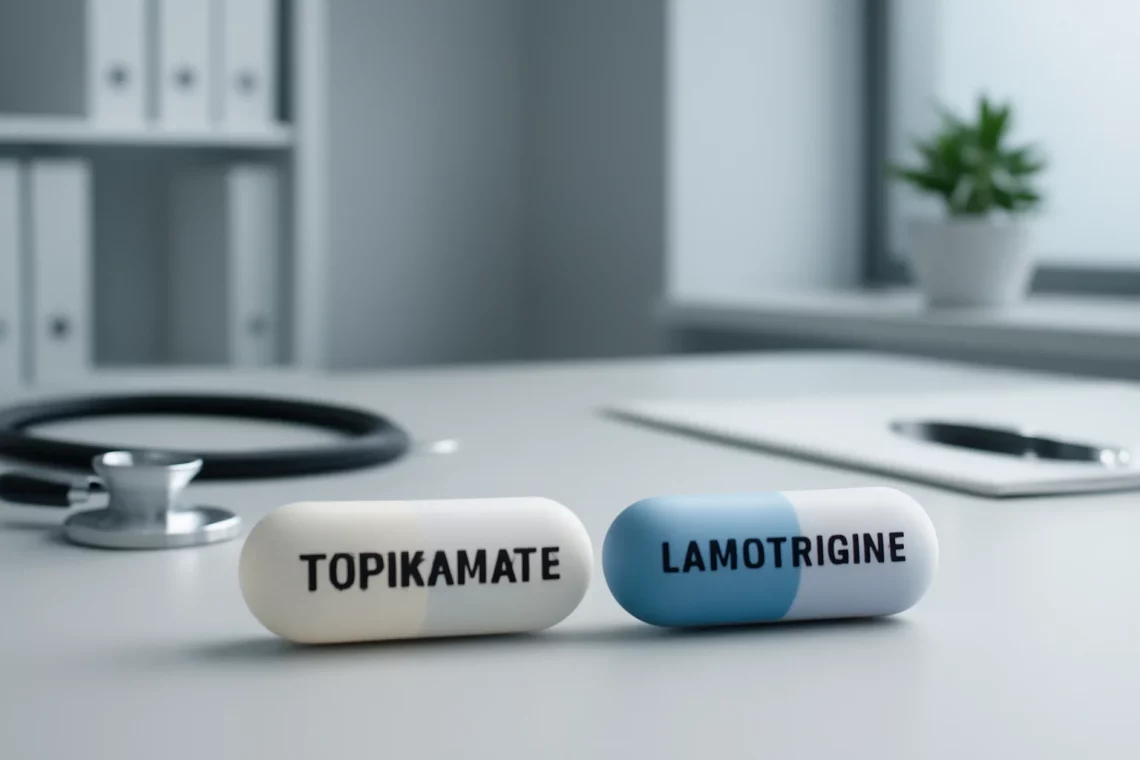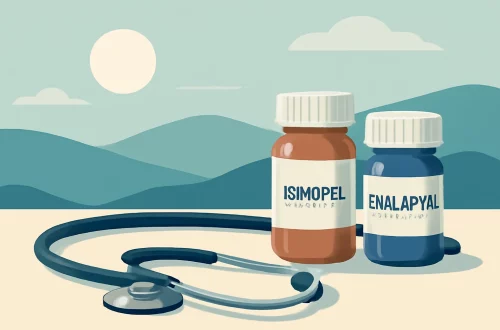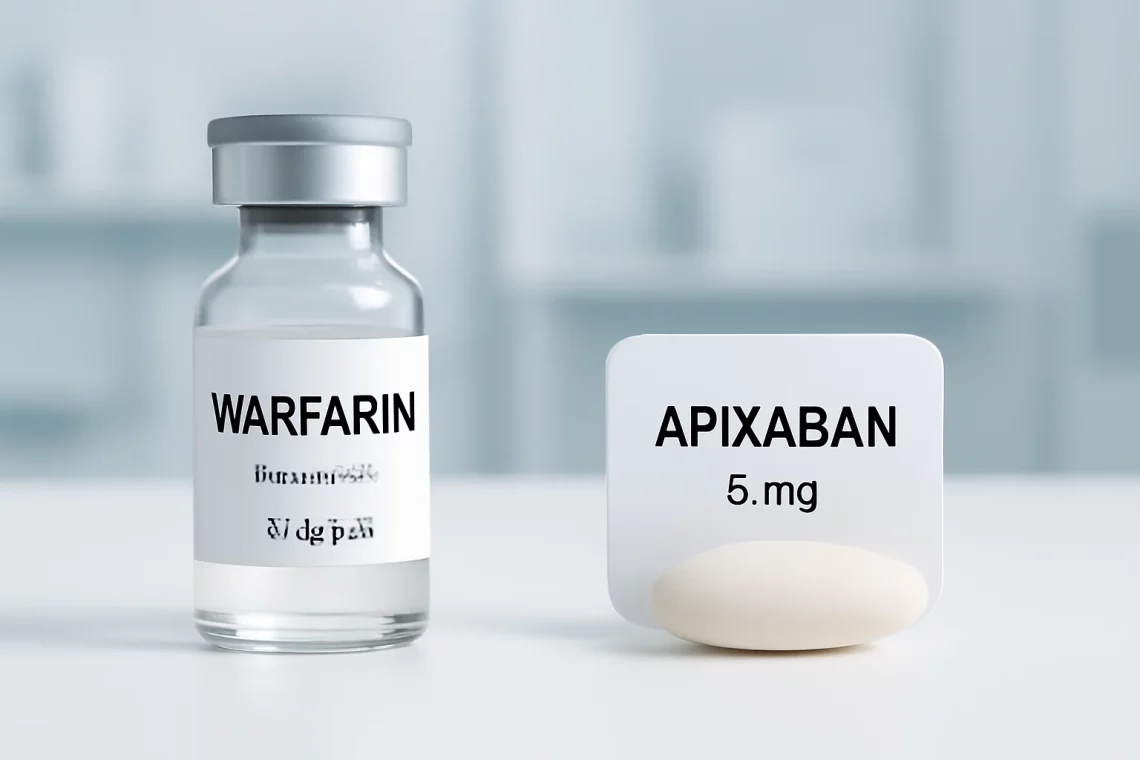-
Linagliptin vs Sitagliptin: Which Diabetes Medication is Right for You?
Managing diabetes is a complex challenge that requires a multifaceted approach, including lifestyle modifications and, often, medication. Among the various pharmaceuticals designed to help control blood sugar levels, Linagliptin and Sitagliptin have emerged as popular options. Both belong to a class of medications known as DPP-4 inhibitors, which work by enhancing the body’s natural ability to lower blood sugar. As diabetes continues to affect millions worldwide, understanding the differences, benefits, and drawbacks of these medications is crucial for individuals looking to manage their condition effectively. While both Linagliptin and Sitagliptin share similar mechanisms of action, they also have unique properties that may influence a patient’s choice between the two. Factors…
-
Lexapro vs Effexor XR: Choosing the Right Antidepressant for You
Lexapro and Effexor XR are two commonly prescribed medications for the treatment of mood disorders, particularly depression and anxiety. As mental health awareness continues to grow, so does the interest in understanding the various options available for managing these conditions. These medications belong to different classes of antidepressants, each with its unique mechanisms of action, side effects, and benefits. In today’s fast-paced world, many individuals seek effective treatment options to help them cope with the challenges of daily life. The choice between Lexapro and Effexor XR can significantly impact a patient’s journey toward mental wellness. Understanding the differences and similarities between these two medications is essential for making informed decisions…
-
Sublocade vs Methadone: Which Treatment is Right for You?
The opioid crisis has become a significant public health concern, leading to an increased need for effective treatment options for individuals struggling with opioid use disorder. Among these options, two treatments have gained considerable attention: Sublocade and methadone. Both therapies aim to alleviate withdrawal symptoms and cravings, helping patients regain control of their lives. However, they differ in their formulations, administration methods, and overall effectiveness. Sublocade is a relatively newer medication that delivers buprenorphine in a long-acting injectable form. This novel delivery system allows for once-monthly administration, which can enhance adherence and reduce the risk of misuse. On the other hand, methadone has been a cornerstone of opioid addiction treatment…
-
Lamotrigine vs Topiramate: Choosing the Right Medication for You
Lamotrigine and Topiramate are two medications commonly used in the management of neurological disorders, particularly epilepsy and bipolar disorder. As the understanding of these conditions has evolved, so too have the treatment methodologies, leading to the development of diverse pharmacological options. Both Lamotrigine and Topiramate belong to a class of drugs known as anticonvulsants, but they have unique mechanisms of action, side effect profiles, and indications that can influence a clinician’s choice when prescribing for their patients. Patients and healthcare providers alike are often faced with decisions about which medication to choose, weighing factors such as efficacy, side effects, and individual patient needs. Understanding the nuances of each medication is…
-
Glipizide vs Glyburide: Which Diabetes Medication is Right for You?
Glipizide and glyburide are two widely prescribed medications used to manage type 2 diabetes. Both belong to a class of drugs known as sulfonylureas, which work by stimulating the pancreas to release insulin, thereby lowering blood sugar levels. Diabetes is a chronic condition that affects millions of people worldwide, and effective management is crucial for preventing complications associated with the disease. As the prevalence of diabetes continues to rise, understanding the various treatment options becomes increasingly important. While both glipizide and glyburide serve the same purpose, they possess distinct characteristics, mechanisms of action, and side effect profiles. This creates a scenario where patients and healthcare providers must weigh the options…
-
Metformin vs Tradjenta: Which Diabetes Medication is Right for You?
Metformin and Tradjenta are two medications commonly used in the management of type 2 diabetes. Each serves a unique purpose and has a distinct mechanism of action, making them valuable tools in the treatment landscape for those managing blood sugar levels. Metformin, a biguanide, has been a staple in diabetes management for many years, primarily known for its effectiveness in lowering glucose production in the liver and improving insulin sensitivity. On the other hand, Tradjenta, or linagliptin, belongs to a newer class of diabetes medications known as DPP-4 inhibitors, which help increase insulin levels after meals and decrease the amount of glucose produced by the liver. As the prevalence of…
-
Jardiance vs Steglatro: Which Diabetes Medication is Right for You?
Jardiance and Steglatro are two medications that belong to the class of drugs known as SGLT2 inhibitors, which are primarily used to manage type 2 diabetes. As the prevalence of diabetes continues to rise globally, the importance of understanding various treatment options becomes increasingly significant. Both Jardiance (empagliflozin) and Steglatro (ertugliflozin) offer unique benefits and potential side effects that can influence a patient’s choice of treatment. The mechanism of action for these medications revolves around helping the kidneys eliminate excess glucose through urine, thus lowering blood sugar levels. Patient experience, efficacy, and safety profiles are key considerations when evaluating these medications. With the growing emphasis on personalized medicine, understanding how…
-
Topiramate vs Lamotrigine: Choosing the Right Treatment Option
The choice between topiramate and lamotrigine is an important consideration for individuals dealing with epilepsy, mood disorders, or other neurological conditions. Both medications play a significant role in managing seizures and stabilizing mood, yet they operate through different mechanisms and come with distinct profiles of efficacy and side effects. Understanding these differences is crucial for patients and healthcare providers alike, as it can impact treatment outcomes and overall quality of life. Topiramate, an anticonvulsant, is renowned for its efficacy in seizure control and is often prescribed for conditions like migraines and bipolar disorder. Lamotrigine, on the other hand, is primarily utilized for its mood-stabilizing properties, particularly in the treatment of…
-
Warfarin or Apixaban: Choosing the Right Anticoagulant for You
The choice between Warfarin and Apixaban has become increasingly relevant in discussions surrounding anticoagulant therapy. As the prevalence of conditions such as atrial fibrillation and venous thromboembolism rises, understanding the nuances of these two medications is essential for both healthcare providers and patients. Anticoagulants play a crucial role in preventing blood clots, which can lead to serious health complications, including stroke and pulmonary embolism. Warfarin, a traditional anticoagulant, has been used for decades and is known for its effectiveness, but it comes with certain dietary restrictions and requires regular monitoring of blood levels. In contrast, Apixaban is a newer medication that falls into the category of direct oral anticoagulants (DOACs).…
-
Warfarin vs Apixaban: Which Anticoagulant Is Right for You?
Warfarin and Apixaban are two commonly used anticoagulants that have transformed the management of thromboembolic disorders. These medications play a crucial role in preventing blood clots, which can lead to serious complications such as stroke and deep vein thrombosis. The choice between Warfarin and Apixaban often depends on various factors, including the specific medical condition being treated, patient preferences, and the physician’s assessment. Anticoagulants are pivotal in modern medicine, but the decisions surrounding their use can be complex. Patients may experience anxiety about the risks and benefits associated with these drugs, given their potential side effects and the need for regular monitoring, particularly with Warfarin. Understanding how these medications work,…
